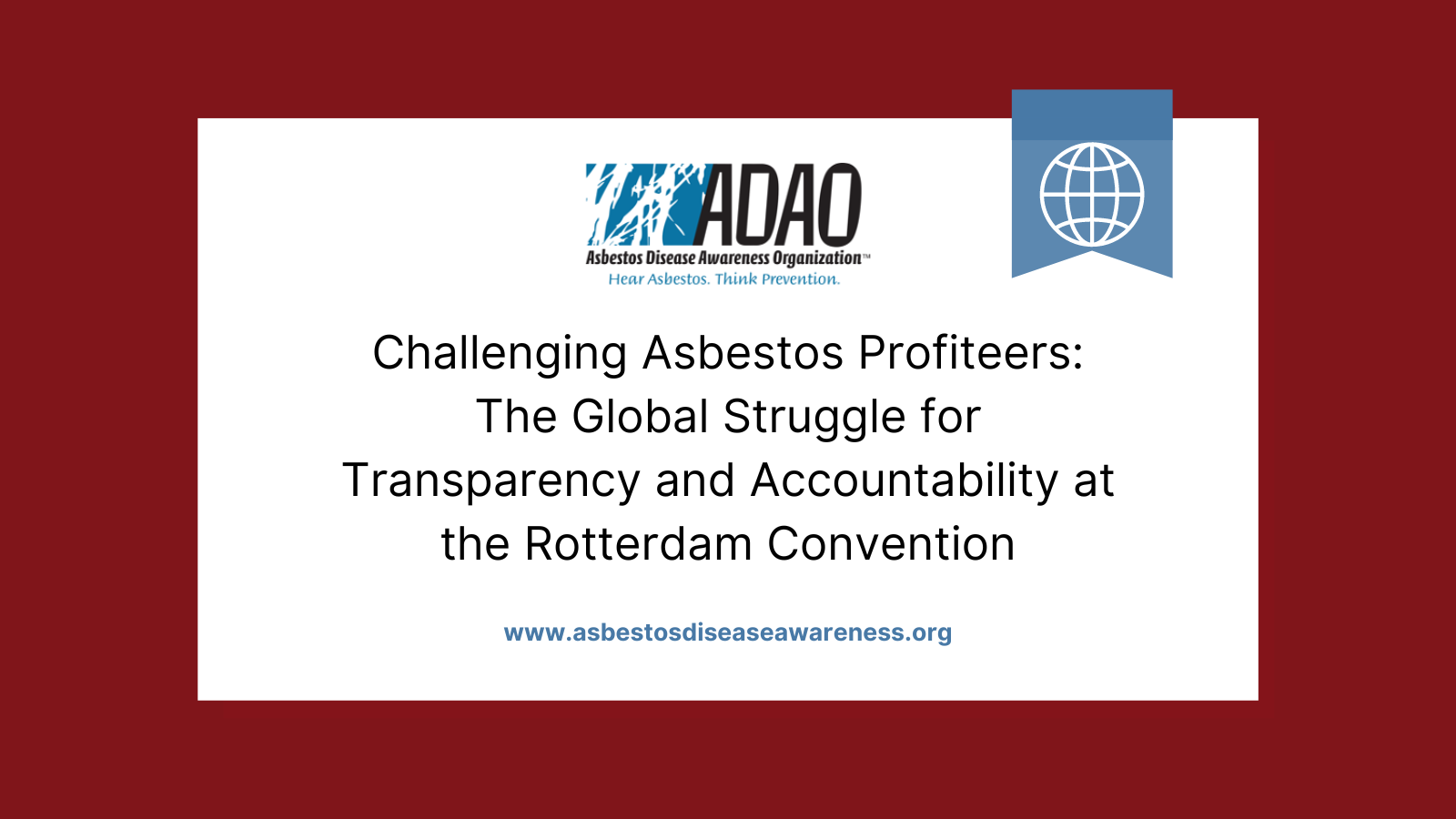Posted on May 16, 2023
The Asbestos Disease Awareness Organization (ADAO) proudly stands in solidarity as part of an open letter advocating for an amendment to the Rotterdam Convention to enhance its effectiveness while upholding the consensus principle. This amendment aimed to enable Parties that wished to share information about hazardous chemicals to continue doing so.
The Rotterdam Convention played a critical role in the global safe management of chemicals. However, ADAO joined this letter in response to troubling tactics employed by industry and a small group of countries during this year’s convention, which hindered progress. These tactics obstructed listing highly hazardous chemicals and pesticides, including chrysotile asbestos, which poses significant threats to human health and the environment, resulting in death and harm.
The Prior Informed Consent (PIC) procedure of the Rotterdam Convention ensured that countries had the right to know which highly hazardous listed chemicals and pesticides were entering their borders. This empowered them to take necessary regulatory actions to restrict or prohibit the entry of these substances, thus safeguarding the health of their citizens and the environment.
Despite fulfilling all the criteria for listing, including unanimous support from the Convention’s Chemical Review Committee, five chemicals, including the highly hazardous chrysotile asbestos, remained blocked from being listed before the COP11 meeting in Geneva. Asbestos is a major occupational killer worldwide, causing over 200,000 worker deaths annually. Additionally, four pesticides that significantly harm workers’ health, especially in developing countries, continued to be blocked. This year, another hazardous pesticide was added to the growing list of blocked chemicals, underscoring the increasing threat faced by the Convention and highlighting the urgent need for reform.
A global coalition of over 40 trade unions and civil society organizations expressed frustration and dismay over failing to list chrysotile asbestos and other hazardous chemicals. These blocking tactics undermined the Convention’s objective of informing countries about the most dangerous chemicals entering their borders. ADAO took great pride in advocating for the right to know.
David Azoulay, CIEL’s Director of the Environmental Health Program, shared, “For many years now, the Rotterdam Convention has been manipulated by a few countries, favoring narrow national and corporate interests and obstructing action to include harmful chemicals such as chrysotile asbestos, acetochlor, carbosulfan, fenthion, and paraquat under the Convention. Listing these harmful chemicals would, at the very least, have ensured the right to information on their toxicity, but once again, it was blocked.”
ADAO extends its congratulations and gratitude to the Australian Council of Trade Unions, BWI, Solidar, IUF, IPEN, PAN, and others for their strong presence and active participation at the Rotterdam Convention.
Although chrysotile asbestos was not added to the PIC List this year, our solidarity remains resolute, buoyed by the support of 70% of the participating States. As we look ahead to 2025, we remain committed to continuing our efforts to pursue a safer and more transparent future.
Linda Reinstein
Social Networks
